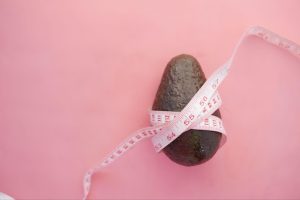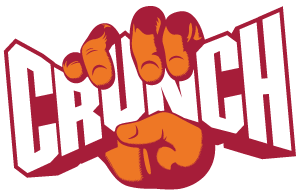Are you someone who suffers from bloating? Fed up with unwanted belly fat and feel like when you eat certain foods this causes this to become even worse?
Bloating and gut health issues are on the rise in modern-day society and it’s a sign your body is actually trying to tell you something and it shouldn’t be ignored. Your digestive system is linked to your nervous system, the endocrine system where a lot of your hormones are produced, and immune system. We have something called a gut-brain axis due to the vagus nerve travelling from your intestine to your brain which can also affect your mental health.
In this blog post, we’ll debunk the common myths and misconceptions about foods to reduce belly fat and bloating and actually provide you with some real tips on foods that can help and what to watch out for when it comes to digestive disruption.

Myths about “miracle” foods
Now, I hate to be the bearer of bad news but you’ve probably been exposed to a few lies which we are going to have to address.. That’s right you’ve been lied to and I almost guarantee someone somewhere has made money from it.. I know, it’s a terrible world we live in but fear not because we are here to set the record straight!
Repeat after me, fat-burning foods DO NOT EXIST. While some foods may boost metabolism or aid in digestion, there is no such thing as a food that can directly “burn” belly fat. Weight loss occurs when you create a calorie deficit through a combination of diet and exercise.
But what about drinking green tea or coffee, can’t that reduce body fat?
You probably either saw an article on this or even got slapped with an advert by a celebrity promoter promoting “Boo-Tea” a tea to help you drop fat fast.. Most likely whoever promoted this has the moral integrity of a sex offender and chose money over integrity.. Green tea and coffee do have some health benefits however like anything excessive consumption can have negative effects on health too.
The myths surrounding foods that supposedly reduce belly fat are not supported by scientific evidence. They tend to oversimplify complex processes involved in weight loss and reduction in belly fat in the hope to have you fall for a marketing ploy to purchase a certain product.
Sustainable weight loss requires a comprehensive approach that includes a combination of healthy eating habits, regular exercise, and adequate sleep. Focusing solely on specific foods or nutrients ignores the broader context of healthy weight management, there are however energy boosting foods that can keep you energised all day.
Focus on Fibre-rich foods
Fibre is a type of carbohydrate that is not digested by the body. Instead, it passes through the digestive system relatively intact providing a range of health benefits. Here are the three main benefits of fibre which could aid in reducing bloating, improving digestion and leading you on the right path to reducing belly fat:
- Fibre promotes fullness: fibre-rich foods are typically low in calories but high in food volume, which means they can help you feel full and satisfied without consuming too many calories. This can be particularly helpful in reducing belly fat, as overeating is a common cause of weight gain in this area.
- It helps regulate digestion: fibre helps regulate digestion by adding bulk to stool, which can prevent constipation and bloating. This can be especially important in reducing bloating in the abdominal area, as constipation can lead to gas and discomfort.
- Reduces inflammation: High-fibre diets have been shown to reduce inflammation in the body, which can be a risk factor for a range of health problems, including obesity. By reducing inflammation, fibre may also help lower the water weight held around the lower abdomen region.
Sources of fibre-rich foods include:
- Fruits: Apples, berries, pears, oranges, and bananas are all excellent sources of fibre.
- Vegetables: Broccoli, spinach, kale, carrots, and sweet potatoes are all good sources of fibre
- Whole grains: Oats, quinoa, brown rice and whole wheat bread are all good sources of fibre.
- Legumes: Lentils, chickpeas, black beans, and kidney beans are all high in fibre.
It’s important to note that increasing fibre intake should be done gradually, as a sudden increase can lead to digestive discomfort and bloating. Aim to consume at least 25 grams of fibre per day for women and 38 grams per day for men and gradually build up not only to aid in bloating but to improve your overall health.
Incorporate Sources Of Lean Protein Into Your Diet
Protein has got some headway in the nutritional headlines in recent years and for good reason, with the majority of diets previously lacking in protein, protein has now become all the rage and here’s how it can help you not only improve body composition by increasing lean body mass but also make it easier for you to adhere to a calorie deficit and reduce body fat by improving satiety which is how satisfied you feel from eating a meal.
When it comes to eating protein we want to include a portion of lean protein with the majority of our meals with females looking to include 20-30g per meal and males 30-40g depending on your height, weight and muscle mass as a rough guide. Sources include beef, chicken, turkey, lamb, pork, salmon, white fish, legumes, lentils, tofu, satan, whey powder or vegan protein.
If you’re struggling to know what to prep or include in your diet then check out our helpful blog a beginner’s guide to food prep.
Limit High Fat & High Sugar Foods
High-fat and high-sugar foods can be massive contributors to bloating and unwanted body fat due to a few reasons. They are often high in calories, which can lead to weight gain which will eventually increase that lower abdomen area you so wish to remain slim. Consuming too many calories from these types of foods can also lead to an imbalance in the gut microbiome, which can contribute to bloating as high-sugar foods can feed the dysbiotic or bad bacteria in our gut.
High-sugar foods can lead to insulin resistance, a condition where the body is less able to use insulin effectively which regulates our blood sugar levels, this is something to be avoided as it will put you at a higher risk of developing type 2 diabetes.
Lastly, both these food groups will cause an increase in inflammation in the body which is associated with a range of health problems, including obesity, cardiovascular disease and others. Inflammation can also contribute to bloating as you will tend to hold more water with cortisol being higher and affecting digestion negatively.
Incorporate Probiotic-Rich Foods
Probiotics are live microorganisms that can provide a range of health benefits by improving overall gut health. They can aid in improving digestion by balancing the gut microbiome and feeding our “good” bacteria which can aid in reducing bloating.
There is a strong link between the gut and our immune system, a happy gut will often lead to a strengthened immune system preventing you from getting ill by preventing infections and reducing inflammation.
With an increase in good bacteria, probiotics can enhance nutrient absorption making it easier for the body to absorb more nutrients from the food you eat thus reducing the risk of nutrient deficiencies that can occur having a huge effect on overall health!
Sources of probiotic-rich foods include:
- Yoghurt: one of the most well-known sources of probiotics. Look for brands that contain live and active cultures for maximum benefit
- Kefir: a fermented milk drink that is rich in probiotics that you’ll find in most health stores
- Sauerkraut: a fermented cabbage dish originated in Europe but is available in most grocery stores
- Kimchi: a Korean dish made from fermented vegetables that is on the spicy side but easy to come by in most grocery stores nowadays.
Improving your overall health with Crunch
So if you’ve made it to the end of this belly-blasting blog, it’s important to recap that when looking to reduce belly fat this can only be done by being in a calorie deficit and losing body fat. However, when it comes to bloating, taking good care of your gut by incorporating fibre-rich foods, probiotic foods, lean sources of protein and limiting high-fat and high-sugar foods are going to give you the best chance of not only reducing bloating but improving your overall health.
When making any change to your health or fitness we want to adopt a sustainable approach and whilst all of this information may seem a little overwhelming and daunting just start by taking small steps, including some extra fruit or veg on a daily basis, aim to include a probiotic food twice per week and reduce your high fat, high sugar foods to perhaps one or two per week and see how you go.
And if this still feels a little too much and you’re stuck wondering what next steps to take with your health and nutrition why not book in for a FREE trial at one of our Crunch gyms to help create a clear roadmap towards your success?
WANT A FREE GYM SESSION!?
Hit the link below to receive your FREE GYM PASS to your nearest CRUNCH Gym!
👉🏻 CLICK HERE


Crunch Fitness Virtual Assistant
 AU
AU United States
United States Canada
Canada Costa Rica
Costa Rica Spain
Spain Portugal
Portugal NSW Clubs
NSW Clubs VIC Clubs
VIC Clubs